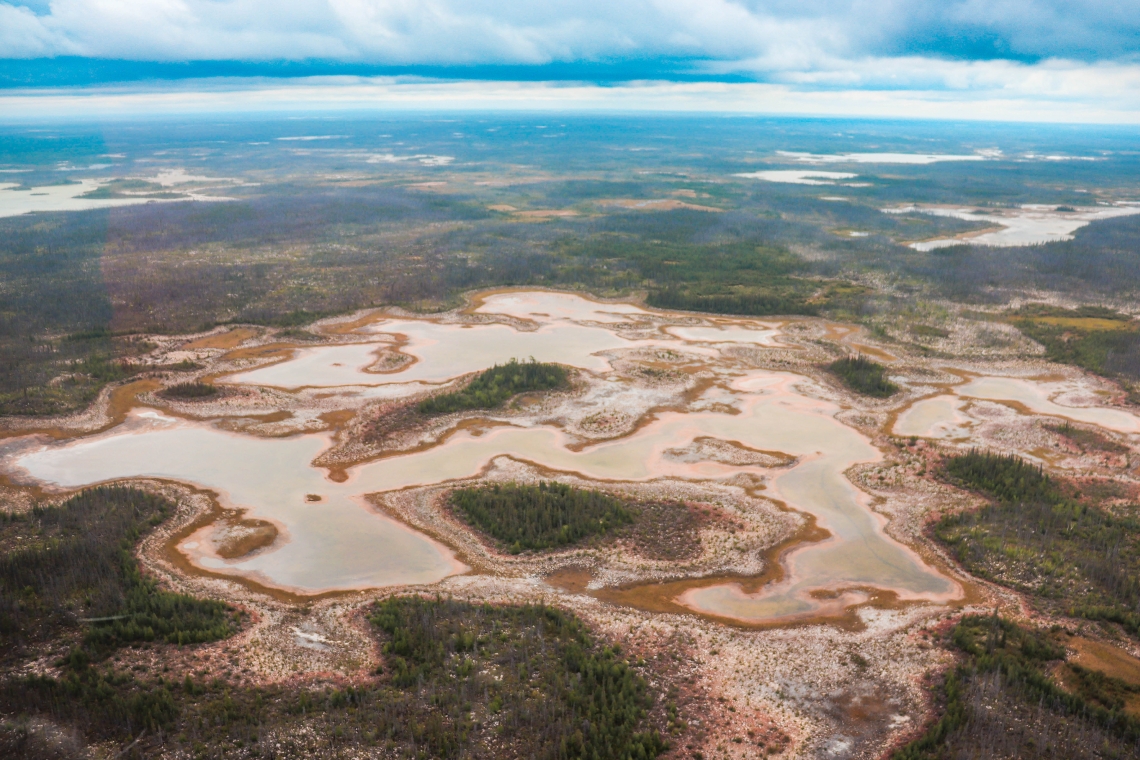Planning practices
Content related to: Planning practices
NEW GUIDE: Alberta NAWMP releases the Landowner Guide to the Alberta Wetland Policy

The Landowner Guide to the Alberta Wetland Policy helps landowners understand their rights and responsibilities when working in and around wetlands on their farm or ranch under Alberta’s Wetland Policy. If you have wetlands on your property, or if you work with people who do, the Guide will help you identify the resources and programs that can be beneficial to your work.
Learn more about the guide here.
Video - From Mammals to Mites: Biodiversity Management Frameworks for Alberta's Land Use Planning Regions
Wetland Knowledge Exchange February 2023 Newsletter
Video - Lessons Learned from Collaborative Land Use Planning in the Northwest Territories
World Wetlands Day 2023 - It's time for restoration!

Each year on February 2nd World Wetlands Day is celebrated globally to bring awareness to the importance of wetlands and highlight the many ways they benefit the planet. First established in 1997, the day is recognized as a United Nations International Day and is organized by the Secretariat of the Convention on Wetlands. This year's theme, restoration, focused on prioritizing global wetland restoration.
To celebrate, the Wetland Knowledge Exchange team from Ducks Unlimited Canada attended Mount Royal University’s third annual World Wetlands Day Symposium in Calgary, AB.
The symposium kicked off with a keynote by Dr. Rodney A. Chimner, a Professor with the College of Forest Resources and Environmental Science at Michigan Technological University. This keynote discussed the use of peatlands as a natural climate solution and highlighted the importance of tropical peatland restoration in places such as Indonesia where peat deposits reach 10-15 metres.
Dr. Chimner spoke to the importance of the protection and restoration of these peatlands due to the massive amounts of emissions resulting from land conversion for palm and rice plantation. Dr. Chimer identified community involvement in peatland restoration like in the Katingan project, which works towards reducing emissions, conserving biodiversity, and protecting wetlands like peatlands by utilizing a carbon credit system.
Dr. Bin Xu, with NAIT’s Centre for Boreal Research kicked off the afternoon with a second keynote presentation on fen restoration in Alberta’s Oil Sands Region. Peatlands cover over 20% of Canada’s boreal region and can be challenging to avoid during resource development leading to roads, seismic lines, well pads and other features often intersecting peatlands.
Dr. Xu spoke on restoration techniques such as the Moss Layer Transfer Technique (MLTT) a simple and effective tool to help restore boreal peatland functions post resource development
The day included presentations by several excellent presenters such as:
-
Jennifer Hird with ABMI, who spoke to the importance of wetland mapping for restoration, and ABMI’s work ABMI’s work to update wetland mapping in Alberta through the Alberta Wetland Inventory. Learn more here.
-
Kristen Andersen with Associated Environmental Consultants Inc., who discussed wetland restoration techniques and provided real world examples.
-
Steven Tannas with Tannas Conservation Services Ltd. spoke on the use of floating islands and native plant species to help improve water quality. Check it out here.
World Wetlands Day saw great uptake around the world with numerous events and press releases sharing wetland conservation and restoration news, including:
-
The G20 Global Land Initiative Coordination Office in partnership with the Ramsar Convention on Wetlands, UN Decade for Ecosystem Restoration, UN Environment Programme, and other partners hosted a Global webinar on “It’s time for wetlands restoration”. See recording here.
-
Ducks Unlimited Canada released Wetlands Work: An Introduction to Atlantic Wetlands for Professionals. This free, online training module is tailored to Canada’s Atlantic region and geared towards both professionals and community members working in municipal planning, forestry or community stewardship. Learn more here.
-
The University of Waterloo’s Ecohydrology Research Group hosted the 11th Annual Work Wetlands Day Symposium at the University of Waterloo with distinguished lecturer, Dr. Line Rocherfort.
-
The Nature Conservancy of Canada added nearly 75 hectares of land, including provincially significant wetlands into protection in Ontario. Learn more here.
Check out this interactive map to find out more about other World Wetlands Day events and learn more about World Wetlands Day here!

